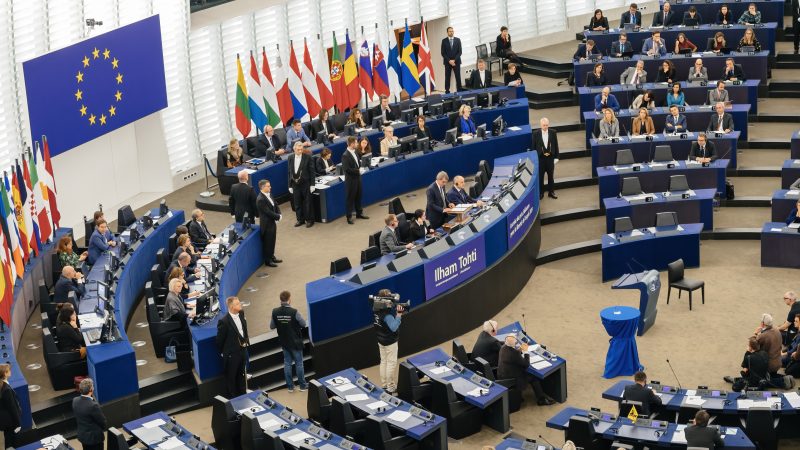
As Westminster continues to be hit by sleaze allegations, and Labour ponders what rules it should bring in if it wins the election, it could do worse than look at what the European parliament has done after the recent ‘Qatargate’ scandal. Its code of conduct for Members of the European Parliament (MEPs) now goes well beyond what is currently required of MPs or Lords. There are six main elements.
First, every MEP must make a detailed declaration of private interests, listing all their memberships of boards of companies, associations, NGOs or public bodies (including those held during the three years prior to their election), for publication on the parliament’s website.
Second, if their total external income exceeds €5,000 (£4,350), then they must list (also for publication on the parliament’s website) all the entities from which their income is received, the amounts and the nature of the work for which they are remunerated. They must declare any support, whether financial or in terms of staff or material, granted by third parties in connection with their political activities and disclose the identity of that third party. Any change must be reported by the end of the following month.
Third, they must resolve or declare any potential conflicts of interest. These are held to exist where the exercise of their mandate in the public interest may be improperly influenced for reasons involving their family, emotional life, economic interest or any other direct or indirect private interest. No member may be elected to a post within the parliament (such as committee chair) unless the respective committee or other body explicitly decides that the conflict of interest does not prevent them from exercising their mandate in the public interest.
Fourth, MEPs are prohibited from engaging in paid lobbying activities directly linked to the EU’s decision-making process. They may not receive any reward in cash or kind for influencing parliamentary processes or voting in parliament or even from receiving gifts (other than minor courtesy gifts worth less than €150). If they cannot decline courtesy gifts when officially representing parliament, they must hand them over to the President (Speaker) for processing (entering into a register and stored or, occasionally, displayed on parliament’s premises).
Fifth, MEPs may only meet interest representatives if the latter have signed up to a transparency register (which itself imposes ethical obligations on the signatories), and they must publish online all scheduled meetings they have had with them, as well as any they have had with representatives of public authorities of third countries (including their diplomatic missions and embassies). This all applies equally to meetings held by the Member’s assistants. (The only derogation from this obligation to publish is if that would endanger the life, physical integrity or liberty of an individual or where there are other compelling reasons for maintaining confidentiality, in which case disclosure is in confidence to the President.)
Finally, Members must also make a declaration of all their assets and liabilities at the beginning and end of every term of office. These are not public but are available to the relevant authorities in the event of an investigation.
There are, of course, still questions: how effectively will this be enforced? Shouldn’t there be an external enforcer, rather than the European parliament Speaker and a committee of MEPs? Is the range of sanctions (up 120 days suspension and forfeiture of daily allowances and/or removal from positions held within parliament) strong enough?
But overall, these new requirements are a significant improvement on the looser rules that went before, and put the European parliament, in some respects, well ahead of Westminster. Worth Labour looking at.




More from LabourList
‘Tackling poverty should be the legacy of Keir Starmer’s government’
‘The High Court judgment brings more uncertainty for the trans community’
‘There are good and bad businesses. Labour needs to be able to explain the difference’